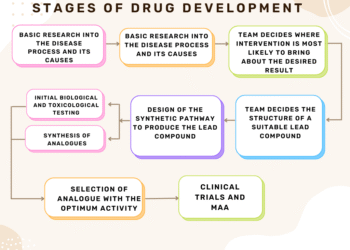Hospital Pharmacist
pharmacists are experts in the field of medicines. They are responsible for the
purchase, manufacture, dispensing, quality testing and supply of all the medicines
used in the hospital. They work closely with medical and nursing staff to
ensure patients receive the most appropriate treatment, and provide help and
advice to patients in all aspects of their medicines.
They
advise on the selection of medicines and the dose and route of administration
for individual patients. They provide information about potential side effects
and ensure that new treatments are compatible with existing medication. In
addition, they monitor the effects of treatment to ensure that it is safe and
effective.
They
will provide advice on medicines for patients with conditions such as heart
failure, kidney or liver disease, and for pregnant or breast-feeding women who
should not take some medicines.
They
will work with individual patients to help select the most appropriate therapy,
taking account of factors including their existing medication, their medical
history, their lifestyle and their ability to understand and adhere to a
treatment plan.
As
well as working on the wards with patients, there are several roles that are
undertaken within the pharmacy itself. Their main role in the dispensary is to professionally
check all prescriptions to ensure that the dispensed medicines are appropriate
and safe for the individual patient.
In
the medicines information department, pharmacists use a range of reference
sources, including electronic databases and the Internet, to provide detailed
information to healthcare professionals and patients about all aspects of
medicines usage. New drugs are evaluated and compared to existing
treatments before the hospital decides whether to purchase them.
Pharmacists
are also involved in the manufacture of medicines when ready-made preparations
are not available. For example, certain cancer treatments and intravenous
feeding solutions need to be tailor made under sterile conditions for
individual patients.
Specialized
roles in other areas such as procurement, radiotherapy, quality assurance and
education also exist.
Many
pharmacists combine their professional role with some form of managerial
responsibility, and also often will be involved in monitoring and reporting on
expenditure from the budget for medicine usage within the hospital.
Most
hospital pharmacists are involved in a range of activities and work with a
variety of healthcare staff and NHS managers so team working, together with the
ability to communicate well at all levels, is essential.
Roles
of Hospital Pharmacist (in short)
- Working
with the healthcare team to ensure the selection of the best medication at
the correct dose for an appropriate duration - Monitoring
and preventing or minimizing side effects and drug interactions - Providing
medication counseling to patients - Dispensing
medications for patients in wards, the emergency department and those
attending outpatient clinics - Manufacturing
specialized medications such as chemotherapy for cancer treatment,
mixtures and creams etc - Offering
specialist drug therapy advice to doctors, nurses and other healthcare professionals
within the hospital - Visiting
patients in their home after discharge to ensure safe medication
management, and to prevent errors and readmission to hospital.









